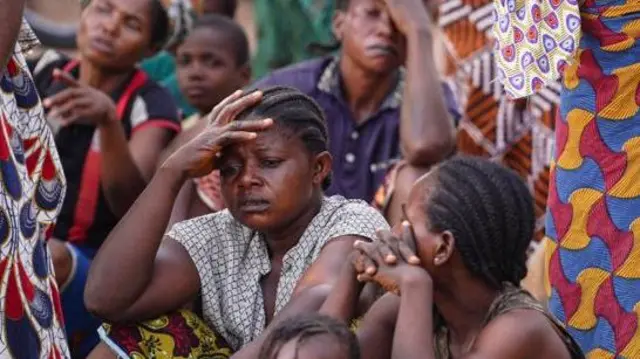
WHO Raises Alarm on Tuberculosis Progress in Nigeria
The World Health Organization (WHO) has warned about Nigeria’s progress in tuberculosis control. The agency cautions that the country may lose two decades of achievements due to severe funding cuts. This setback could lead to an increase in TB mortality rates, affecting millions of Nigerians.
Nigeria’s Fight Against Tuberculosis
For the past 20 years, Nigeria has made significant progress in tackling tuberculosis. With support from global health organizations, the country expanded access to diagnostic tools, treatment centres, and preventive measures. WHO warns of TB funding cuts, stating that these advancements are now at risk due to declining financial support from international donors and government budget constraints.
According to WHO, Nigeria remains among the top 10 countries with the highest TB burden. Efforts to reduce TB mortality in Nigeria have shown positive results, but progress could quickly unravel without continued investment.
Impact of Funding Cuts on Tuberculosis Programs
Reduced financial support has already started to affect Nigeria’s TB programs. WHO warns that limited funds are disrupting essential services, such as:
- Free diagnostic testing for TB patients
- Provision of medications for drug-resistant TB
- Community-based awareness and prevention programs
The rising TB mortality in Nigeria is a growing concern, as thousands of people may lose access to life-saving treatment. Experts stress that without urgent intervention, TB cases could rise sharply, reversing years of progress.
Why Funding is Declining
The WHO attributes the funding crisis to several factors:
- Reduced International Aid: Global funding for TB has declined, with donor nations redirecting resources to other health priorities like COVID-19.
- Economic Challenges: Nigeria faces financial constraints that limit domestic funding for TB control programs.
- Competing Health Crises: Malaria, HIV, and other infectious diseases continue to demand a significant share of health resources, reducing TB funding.
WHO warns of TB funding cuts leading to increased transmission, especially among vulnerable populations. If this trend continues, the health system may struggle to manage the growing TB burden.
The Risk of Rising TB Mortality in Nigeria
Experts caution that Nigeria could face a surge in TB-related deaths if funding is not restored. The rising TB mortality in Nigeria threatens public health, as untreated cases can spread the disease further. Drug-resistant TB cases are particularly concerning, as they require more expensive and prolonged treatment.
Without financial support, WHO estimates that thousands of Nigerians could lose access to timely TB diagnosis and treatment. The situation is especially critical for marginalized communities, where access to healthcare is already limited.
Government and WHO’s Call to Action
To prevent a full-scale TB crisis, WHO urges the Nigerian government to:
- Increase domestic investment in TB programs
- Strengthen partnerships with private health organizations
- Advocate for renewed international donor support
Nigeria’s health ministry acknowledges the funding gap and pledges to work closely with WHO to secure alternative resources. The government emphasizes that tuberculosis progress in Nigeria remains a priority, and efforts are underway to stabilize funding.
The Role of Public Awareness in TB Control
Besides funding, WHO stresses the importance of public awareness in controlling TB. Many Nigerians still lack knowledge about the symptoms and treatment options available. Strengthening community-based awareness campaigns can help detect and treat TB cases early, reducing transmission.
Health experts call for increased collaboration between the government, NGOs, and media to educate the public on TB prevention. With proper funding and awareness, Nigeria can sustain its efforts to fight TB and protect vulnerable populations.
Conclusion
The WHO warns that progress in fighting tuberculosis in Nigeria is at risk due to funding cuts. Without immediate action, rising TB mortality in Nigeria could become a serious public health crisis. The government and global partners must act swiftly to secure resources and maintain the progress achieved over the past two decades. Ensuring continued investment in TB programs will be crucial in preventing a resurgence of the disease.



